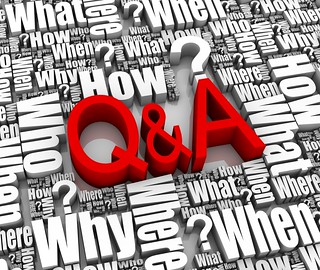 In our modern world of highly connected, internet based communications writers sometimes resort to e-mailing questions to an interview subject instead of doing a personal or telephone interview. Whether this is a good thing or bad thing depends on a lot of factors.
In our modern world of highly connected, internet based communications writers sometimes resort to e-mailing questions to an interview subject instead of doing a personal or telephone interview. Whether this is a good thing or bad thing depends on a lot of factors.
Publisher Rules
The first question a writer must ask himself is, “What does my publisher allow?” In general; large, respected, print publications will require a personal interview with interaction between subject and interviewer. Start by checking your contract or their submission guidelines. If no clear answer is offered, feel out the subject with your editor.
Interview Subject
The second consideration is what will make the subject comfortable and cooperative. Some personalities may not be comfortable with having to sit down and type out answers to a bunch of written questions. Others will prefer this format because it is more flexible than having to block out time for a live interview. If the writer feels an e-Terview is better for her (and the publishers allows it), she should ask the subject if he or she is comfortable with that.
Writer Objective
Another important consideration is what the writer hopes to achieve with the interview. If the interview is planned to gather information for an expose, a written e-Terview is unlikely to work nearly as well as a live interview because the subject is able to thoughtfully compose and edit their responses. If the interview is merely a fact finding mission, a written Q&A may serve both parties well.
Mechanics of an e-Terview
If you have not done so already, your e-Terview message should open with a brief explanation of who you are and what publication will be running your interview. Even if you relayed this in the interview request, it’s good to send it along as a reminder.
Confirm the interviewees’ identity. You will want to get positive confirmation that the respondent will be the person in question, not some PR spin-doctor.
Ask detailed, well thought-out questions. Because you will not be interacting in real time, your questions need to be more focused. In a personal interview, asking open ended questions will get a conversation going and you can home in on the details as it progresses, in a written Q&A you need to be more specific in your questioning.
Set a deadline for return of the questionnaire that will allow you enough time to do follow-up questioning if need be… and time for them to respond; it may take a few days for them to get back to you. Remember that your interview may not be the most important factor in their life.
Editorial Accuracy
When compiling your written interview article from the written Q&A, you may need to abbreviate the questions and pull out specifics in their answers. Be sure you retain the truth and spirit of your questions and their answers. Don’t twist things in order to manufacture controversy. It is probable the subject will have kept a copy of the interview and can use it to bring charges if you create a libelous situation.
Summary
When time and distance make a face-to-face or even telephone interview impractical – and your publisher allows it – an e-Terview can make a lot of sense for both the interviewer and the interviewee. Make sure everyone agrees, think out your questions, and maintain the integrity of the interview and you will end up with a winning article.
What experience do YOU have with Q&A interviews – either as the interviewer or interviewee? Do you prefer them or prefer a live exchange? Please share your thoughts in the comments below.

